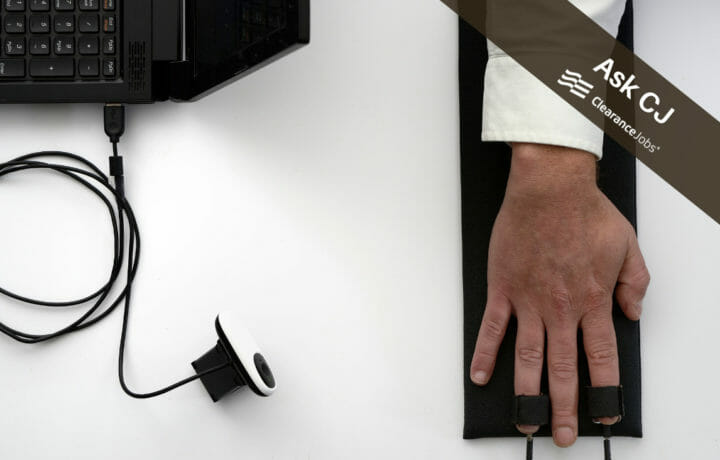Polygraph tests, commonly known as lie detector tests, measure physiological responses such as heart rate, blood pressure, respiration, and skin conductivity while a person answers questions. The idea is that deceptive answers will produce physiological responses that can be detected. The accuracy and reliability of polygraph tests are subjects of debate among experts, and there are various techniques people have discussed for attempting to “beat” the test, which we highly do not recomend. For ethical and legal reasons, it is important to note that attempting to deceive a polygraph test can have serious consequences.
One ClearanceJobsBlog subscriber was incredibly discouraged after failing a polygraph exam:
Hello all, I just wanted to get some feedback and vent. I had an unsuccessful first polygraph at the NSA and trying to figure out next steps. For starters I slept horribly and had to be up at 5:30 am which to my body felt like 3:30 am (flew in from MST), the breakfast was literally a box of cereal. Even before the “control” test we began the examiner asked if I was hiding something. I did say that I tried marijuana a few times in college (never bought or sold, all of them were in a party setting which some random drunk person would just hand me) to which I was given a lengthy monologue about deliberately hiding info on my SF86. Dumb on my part not to list it but also dumb from my perspective that it’s “illegal” but perfectly legal in a bunch of states including the one where it occurred. The examiner kept pressing me about other “crimes” or relevant issues and I was just chucking stuff out there because I was already on edge. The examiner kept saying that as long as she knew everything, it’d be cool and I’d be fine. But I can’t help but think that by talking about a bunch of embarrassing and sensitive stuff prior to that it would have heightened my emotion and physiology coupled with the lack of sleep/breakfast was a disaster waiting to happen. Low and behold I was unsuccessful to which I was told it would “go on my record” and was followed by another round of accusations that I was hiding stuff. Besides marijuana from years ago, I have no criminal issues, no mental health issues, no financial concerns, and disclosed foreign contacts but by the end felt like I was going to be put in cuffs. This was a dream job and I think I’ll be given an opportunity to go back but I don’t know if I even want to go through that experience again. It does make me feel better reading previous posts on here that others had similar experiences…thanks for reading.
One background investigator notes, “Lying about drug use is not putting your best foot forward. It is always the denial and cover-up that is the issue.”
How to Fail a Polygraph
- Adjudicatively-significant admissions: Admitting to a serious crime, lying on the SF-86, or sharing a secret that could be used for blackmail
- Polygraph technical calls: Denying or revoking a security clearance based on technical issues with the polygraph with one agency and suitability for another
- Countermeasures: Taking actions to prevent the polygraph from reading your physiological reactions to questions, such as controlled breathing or taking drugs before the exam
The drug use isn’t the issue in these circumstances. Lying or omission is. It’s clear the applicant was nervous about the polygraph, and that nervousness contributed to a lot of oversharing, in addition to the admitted drug use. It’s helpful to do soul searching prior to applying for the job or going in for the security clearance polygraph. Carefully review your SF-86 again, and if you realize there is something you didn’t previously disclose – reach out to disclose it to your security officer prior to the test.
Ultimately, honesty is the best policy when it comes to polygraph tests, especially given the potential legal and personal consequences of attempting to deceive one. If you apply for a cleared position that requires you to undergo a polygraph examination, follow your normal routine and avoid the how-to-beat-the-polygraph articles you may have come across online.




